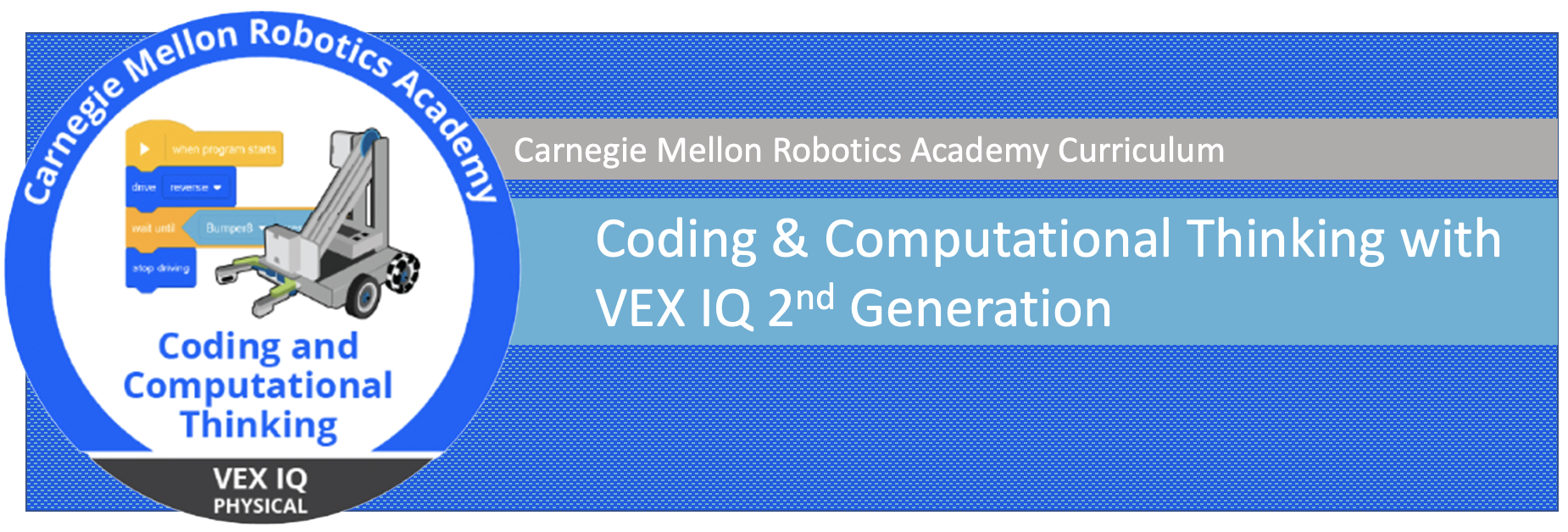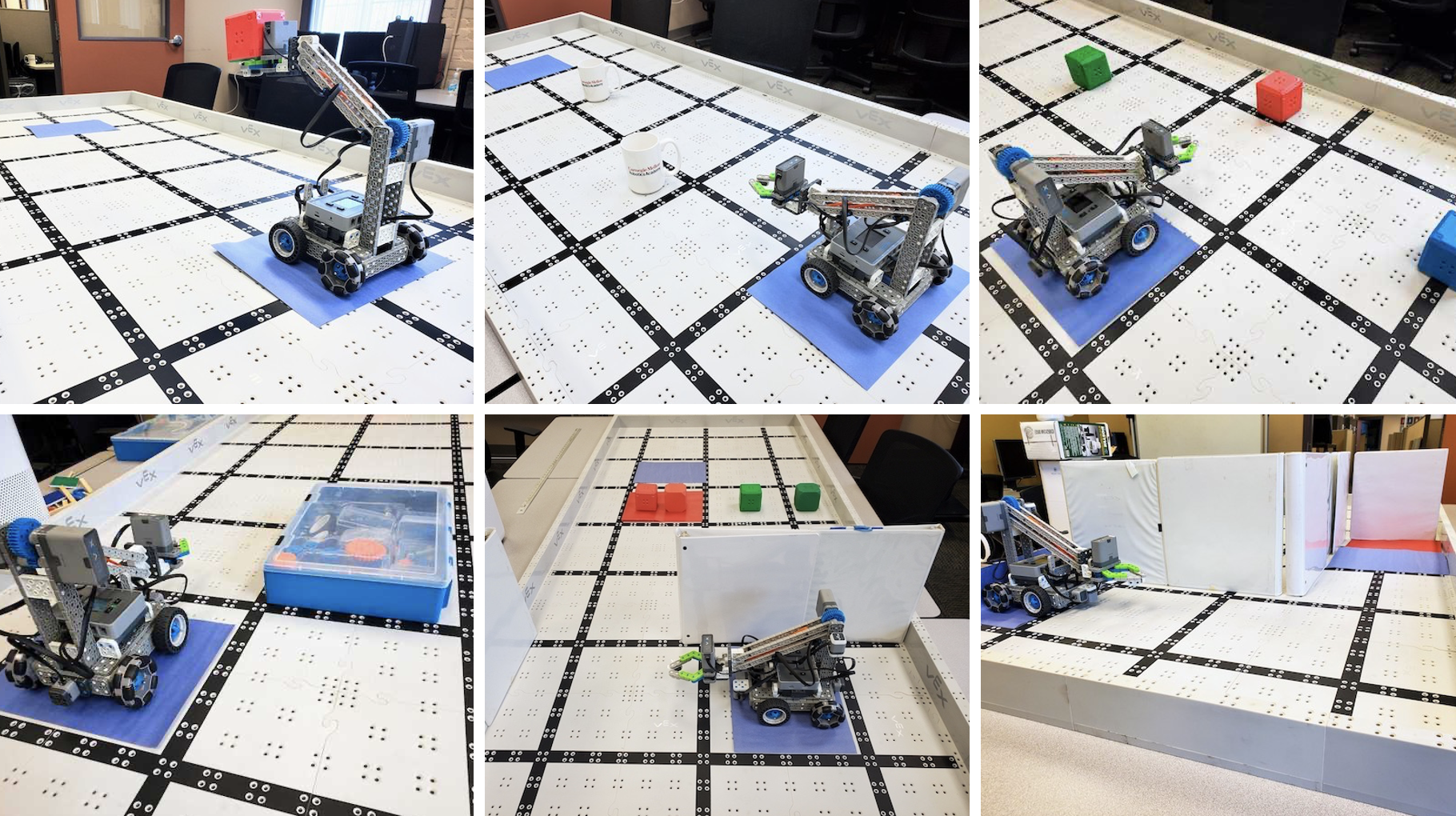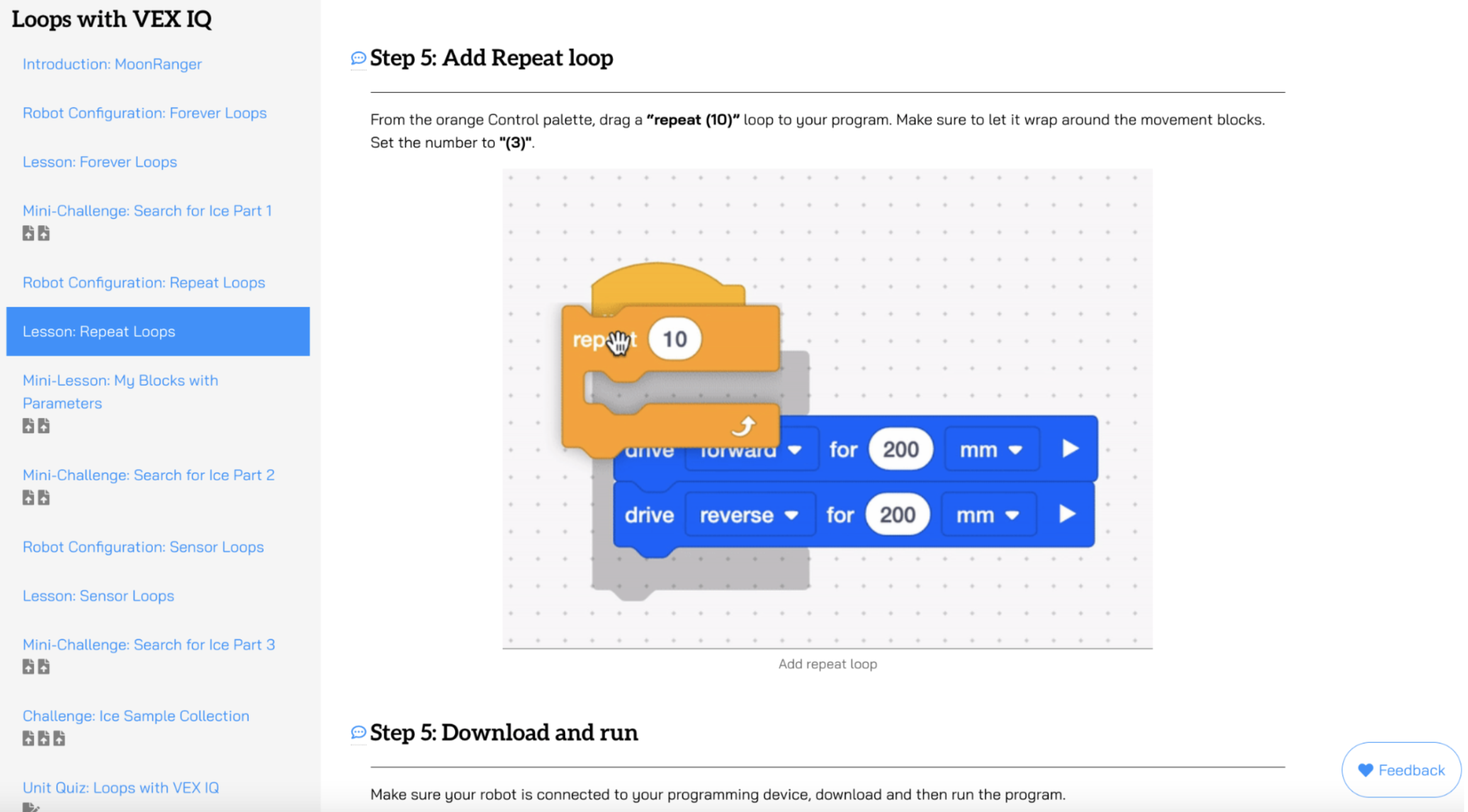
New VEX IQ 2nd Generation Curriculum
By Catherine Porter
A new VEX IQ 2nd Generation curriculum is here! You can teach Coding and Computational Thinking with VEX IQ (2nd Gen) to your students to educate them in the fundamentals of programming, problem-solving, mathematics, and robotics. The curriculum provides a structured sequence of programming activities in real-world project-based contexts. The projects are designed to get students thinking about the patterns and structure of computational thinking.

Recently, VEX Robotics produced a new generation of the VEX IQ robot that includes several updates and new features. Advancements such as longer battery life, an internal gyro sensor, new silicon building pieces, and enhanced capabilities in each sensor is what makes the 2nd Generation a great improvement from the 1st. You can read about more updates and the differences of each generation here: https://www.vexrobotics.com/iq/products/kits-bundles/gen2-comparison
Coding and Computational Thinking with VEX IQ 2nd Gen is broken down into 9 units: Getting Started, Programming the Brain, Robot Movement, Digital Sensors, Analog Sensors, Loops, Discrete Decisions, Capstone: Subterranean Challenge, and Continuous Decisions.

Each unit of the curriculum is strategically scaffolded with videos, animations, and step-by-step lessons designed to help learners foster Computational Thinking using the VEX IQ 2nd Gen hardware and VEXcode programming software.

Learners are introduced to some of Carnegie Mellon University’s robots built to provide solutions in space exploration, manufacturing, defense, and mining. Challenges and activities in the curriculum are themed around these robots so students are given the task to develop their own solution to these real-world problems.
Teacher and student certifications and professional development training for this curriculum are also available!
Finally, I’d like to thank the small and highly committed group of educators that helped us to test and refine this curriculum over the last few months. A special thanks to Anna from Ross School in East Hampton, NY; Gilbert from Trinity Lutheran Christian School in Bel Air, MD; Anthony from Riverside Middle School, PA; Abe from Port Discover Science Museum in Elizabeth City, NC; and Adrian from the Philippines.